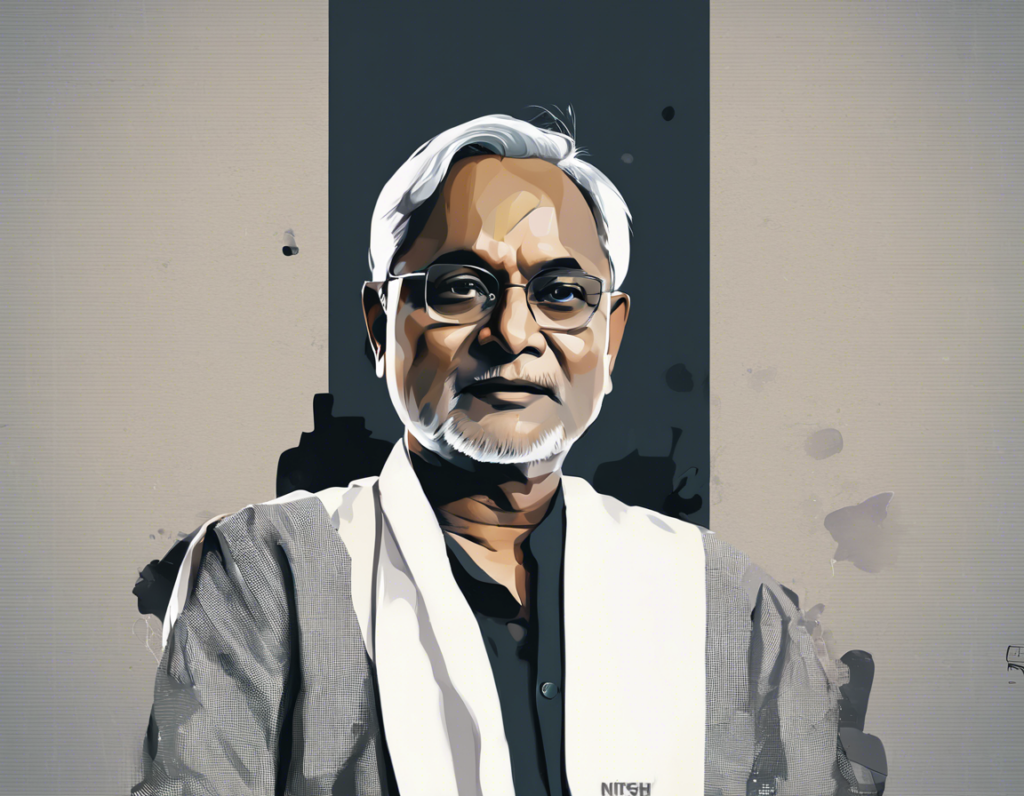Nitish Kumar is a prominent Indian politician known for his contributions to the world of politics. His journey has been filled with ups and downs, victories and defeats, and a consistent effort to serve the people of Bihar. Let’s delve into the political journey of Nitish Kumar to understand the essence of his career and the impact he has had on Indian politics.
Early Life and Entry into Politics
Nitish Kumar was born on March 1, 1951, in Bakhtiarpur, Bihar. He comes from a modest background and his upbringing played a significant role in shaping his ideologies and beliefs. He completed his formal education from Bihar College of Engineering, now NIT Patna, and later worked as a clerk in the Bihar Veterinary College. However, his interest in politics led him to join the socialist movement in the 1970s.
Rise to Prominence
In 1974, Nitish Kumar was actively involved in the Jayaprakash Narayan-led movement against the then Prime Minister, Indira Gandhi. This was a significant turning point in his political career as he gained recognition for his leadership skills and commitment to social justice. He joined the Janata Party, followed by Janata Dal, and eventually became a part of the Samata Party.
Chief Minister of Bihar
Nitish Kumar first became the Chief Minister of Bihar in 2000. His term was short-lived due to political instability, but he returned to power in 2005 as the head of a coalition government. Known for his emphasis on good governance and development, he initiated several reforms in Bihar, focusing on education, healthcare, and infrastructure. Under his leadership, Bihar witnessed a period of relative stability and progress.
Alliance with BJP and Resignations
In 2013, Nitish Kumar ended his alliance with the BJP over ideological differences. However, the alliance was rekindled in 2017, and he once again became the Chief Minister of Bihar. In 2020, Kumar resigned from his position after a poor performance in the state elections, only to take oath as Chief Minister a day later. This move showcased the intricacies of coalition politics and the challenges of maintaining power in a diverse political landscape.
Social Welfare Schemes and Initiatives
Throughout his political career, Nitish Kumar has focused on implementing social welfare schemes to uplift the marginalized sections of society. Initiatives like the “Bicycle Scheme” for schoolgirls, “Bihar Student Credit Card Scheme,” and efforts to improve healthcare services have aimed to bring about positive change in the lives of Bihar’s residents.
Challenges and Criticisms
Nitish Kumar’s political journey has not been devoid of challenges and criticisms. His alliance shifts, occasional flip-flops on policies, and allegations of corruption have attracted scrutiny. His decision to implement prohibition in Bihar faced mixed responses, with some praising it as a positive step for society and others criticizing it for being draconian.
Future Prospects
As Nitish Kumar continues his political journey, the future holds uncertainties and challenges. With the ever-evolving political landscape in India and Bihar, he faces the task of balancing development goals with the aspirations of the people. His ability to adapt to changing circumstances and address the needs of his constituents will determine his legacy in Indian politics.
Frequently Asked Questions (FAQs)
1. What are some key highlights of Nitish Kumar’s tenure as Chief Minister of Bihar?
Answer: Nitish Kumar’s tenure saw a focus on education, healthcare, and infrastructure development in Bihar. He initiated social welfare schemes and worked towards improving governance in the state.
2. How has Nitish Kumar contributed to the social welfare sector in Bihar?
Answer: Nitish Kumar introduced schemes like the “Bicycle Scheme” for schoolgirls and the “Bihar Student Credit Card Scheme” to enhance access to education and opportunities for the youth.
3. Why did Nitish Kumar resign as Chief Minister of Bihar in 2020?
Answer: Nitish Kumar resigned following a poor performance by his party in the state elections. However, he returned to power a day later after taking oath as Chief Minister again.
4. What challenges has Nitish Kumar faced during his political career?
Answer: Nitish Kumar has faced challenges related to alliance shifts, criticisms of his policies, and allegations of corruption. Adapting to the evolving political scenario has been a persistent challenge.
5. How has Nitish Kumar navigated the complexities of coalition politics in Bihar?
Answer: Nitish Kumar has shown versatility in navigating the intricacies of coalition politics by forming alliances based on the prevailing circumstances while striving to uphold his governance agenda.
